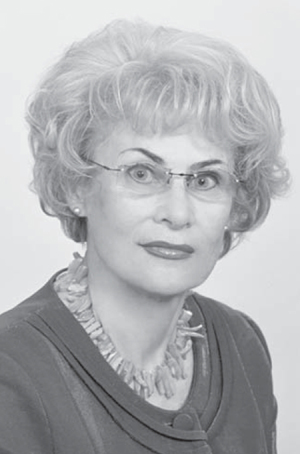Эффективность метода кратковременного консультирования при решении проблем физической активности старшеклассников
Фотографии:
ˑ:
Доктор социальных (эдукология) наук, профессор А. Думчене
Докторант В. Ракаускене
Литовский университет спорта, Каунас, Литва
Ключевые слова: ученик, физическая активность, консультирование, педагогическая коммуникация, физическая культура
Введение. Подростковый и юношеский возраст период жизни, имеющий наивысший потенциал для интеллектуального и физического развития, в течение которого формируются пожизненные социальные навыки, включая навыки, связанные со здоровьем. Поэтому наблюдаемое снижение физической активности в подростковом возрасте является актуальной проблемой для ученых многих странах [1, 4].
Цель исследования – экспериментальная оценка эффективности метода кратковременного консультирования, направленного на решение проблем совершенствования физического воспитания и повышения физической активности учеников старших классов.
Литература
- Barr-Anderson, D.J. But I like PE: factors associated with enjoyment of physical education class in middle schoolgirls / D.J. Barr-Anderson, D. Neumark-Sztainer, K.H. Schmitz, D.S. Ward, T.L Conway, C. Pratt, C.D. Baggett, L. Lytle, R.R. Pate // Research Quarterly for Exercise & Sport. – 2008. – Vol. 79, № 1. – P. 18–27.
- Cairney, J. (2012). Gender, perceived competence and the enjoyment of physical education in children: a longitudinal examination / J. Cairney, M.Y. Kwan, S. Velduizen, J. Hay, S.R. Bray, B.E. Faught // International Journal of Behavioral Nutrition and Physical Activity. – 2012. 9:26. URL: http://www.ijbnpa.org/content/9/1/26 (request data: 20.10.2012)
- De Shazer, S. (1985). Keys to solution in brief therapy /S. De Shazer. – New York: W.W. Norton & Company, 1985. – 208 P.
- Dumith, S.C. Physical activity change during adolescence: a systematic review and a pooled analysis / S.C. Dumith, D.P. Gigante, M.R. Domingues, H.W. Kohl // International Journal of Epidemiology. – 2011. – № 1. – P. 1–14.
- Lee, P.H. Validity of the international physical activity questionnaire short form (IPAQ-SF): A systematic review / P.H. Lee, D.J. Macfarlane, T.H. Lam, S.M. Stewart // International Journal of Behavioral Nutrition and Physical Activity. – 2011. – Vol. 8, № 1. – P. 115.
- Li, W. Measuring Students‘ Perceptions of Personal and Social Responsibility and the Relationship to Intrinsic Motivation in Urban Physical Education / W. Li, P.M. Wright, P.B. Rukavina, M. Pickering // Journal of Teaching in Physical Education. – 2008. – Vol. 27. – P. 167–178.
- Lin, J.S., O'Connor, E. Whitlock, E.P. (2010). Behavioral Counseling to Promote Physical Activity and a Health full Diet to Prevent Cardiovascular Disease in Adults / J.S. Lin, E. O'Connor, E.P. Whitlock & Beil T.L. // Annals of Internal Medicine. – 2010. – Vol. 153, № 11. – P. 736–750.
- Iveson, C. Solution-focused brief therapy / C. Iveson // Advances in Psychiatric Treatment. – 2002. – № 8. – P. 149–156.
- Nikolaev Yu.М. From theory of physical education to theory of physical culture in context of formation of new mind-set / Yu.M. Nikolaev //Teoriya I praktika fizicheskoy kultury. – 2012. – № 10. – P. 94–100. (In Russian)
- Schneider, M. Enjoyment of exercise moderates the impact of a school-based physical activity intervention / M. Schneider, D.M. Cooper // International Journal of Behavioral Nutrition and Physical Activity. – 2011. – Vol. 2, № 8. – P. 64–72.
- Williams, D.J. Little pain, much gain: Solution-focused counseling on physical activity / D.J. Williams, W.B. Strean // Canadian Family Physician. 2005. – Vol. 51, № 5. – P. 677–678.
Информация для связи с автором: a.dumciene@lkka.lt
Поступила в редакцию 04.12.2012 г.




 Журнал "THEORY AND PRACTICE
Журнал "THEORY AND PRACTICE